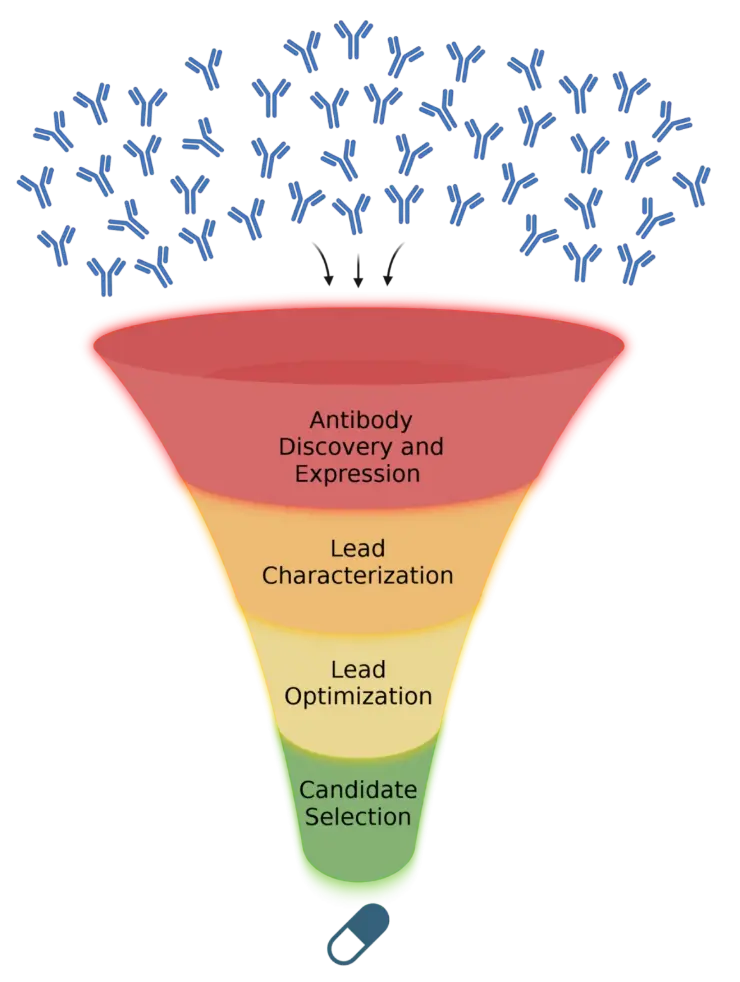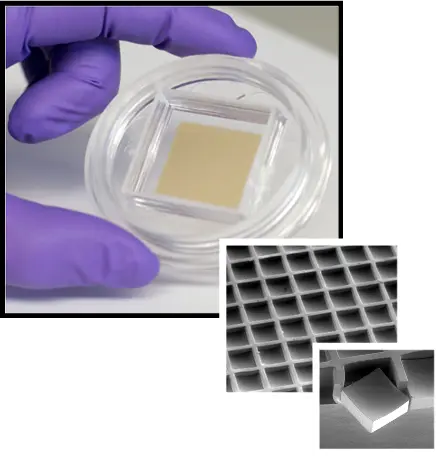Breaking Bottlenecks in Antibody Discovery
From research tools to FDA-approved therapeutics, antibodies have transformed science and medicine. Yet, the journey from immunization to a validated antibody remains slow and resource-intensive.
- Hybridoma screening is laborious and prone to genetic drift.
- B-cell sequencing is costly and lacks early functional insights.
- Recombinant antibody generation depends on producing stable, high-titer monoclonal lines.
These approaches often require extensive downstream assays to find functional antibodies—consuming time and resources on non-productive cells.

CellRaft Technology: Smarter Antibody Discovery

CellRaft Technology turns the traditional screening funnel upside down. Instead of screening blindly, it enables you to:
- Detect antibody secretion and specificity directly on-array
- Screen tens of thousands of individual cells in one compact consumable
- Isolate only the clones that matter— saving time and resources downstream
Using in-raft assays with flexible fluorescent readouts, researchers can detect generic IgG and antigen-specific antibodies in the same microwell, at the single-cell level.
Applications Across the Antibody Discovery Pipeline
How It Works
Miniaturized ELISA
Detect antibody secretion in situ with fluorescent capture reagents.
Image-based Cytometry
Use CellRaft Cytometry software to identify viable antigen-specific cells.
Fluidics-Free Isolation
Recover cells on biocompatible rafts for direct expansion or sequencing.
96-Well Compatibility
Seamlessly integrate into ELISA, sequencing, and production workflows.
Advantages at a Glance
Ensuring cells undergoing gene editing grow into clonal colonies is an essential component of the editing workflow. Using the CellRaft AIR® system, single cells can be imaged and tracked over the course of colony formation. In addition, the knockout phenotypes (elimination of GFP and RFP signal) can be tracked over time which provides a unique capability for phenotypic gene editing screening.
Feature | Traditional Methods | CellRaft AIR System |
|---|---|---|
Throughput | 1,000 cells per 10 plates | 40,000 cells per array |
Function-first screening | ❌ | ✅ |
Clonal tracking | ❌ | ✅ |
Media usage | ~4,000 mL for 10 plates | ~3 mL per array |
Hands-on time | Dozens of hours | ~21 hours total per campaign |
Scale flexibility | Limited | Scalable from 1 to 10+ arrays |
Want to Start Faster? We'll Do It for You.
Our applications team offers lab services to help you:
- Rescue clones
- Screen hybridomas or plasma cells
- Develop custom antibody-expressing lines
When you’re ready, we’ll help you bring the workflow in-house with full training and support.


